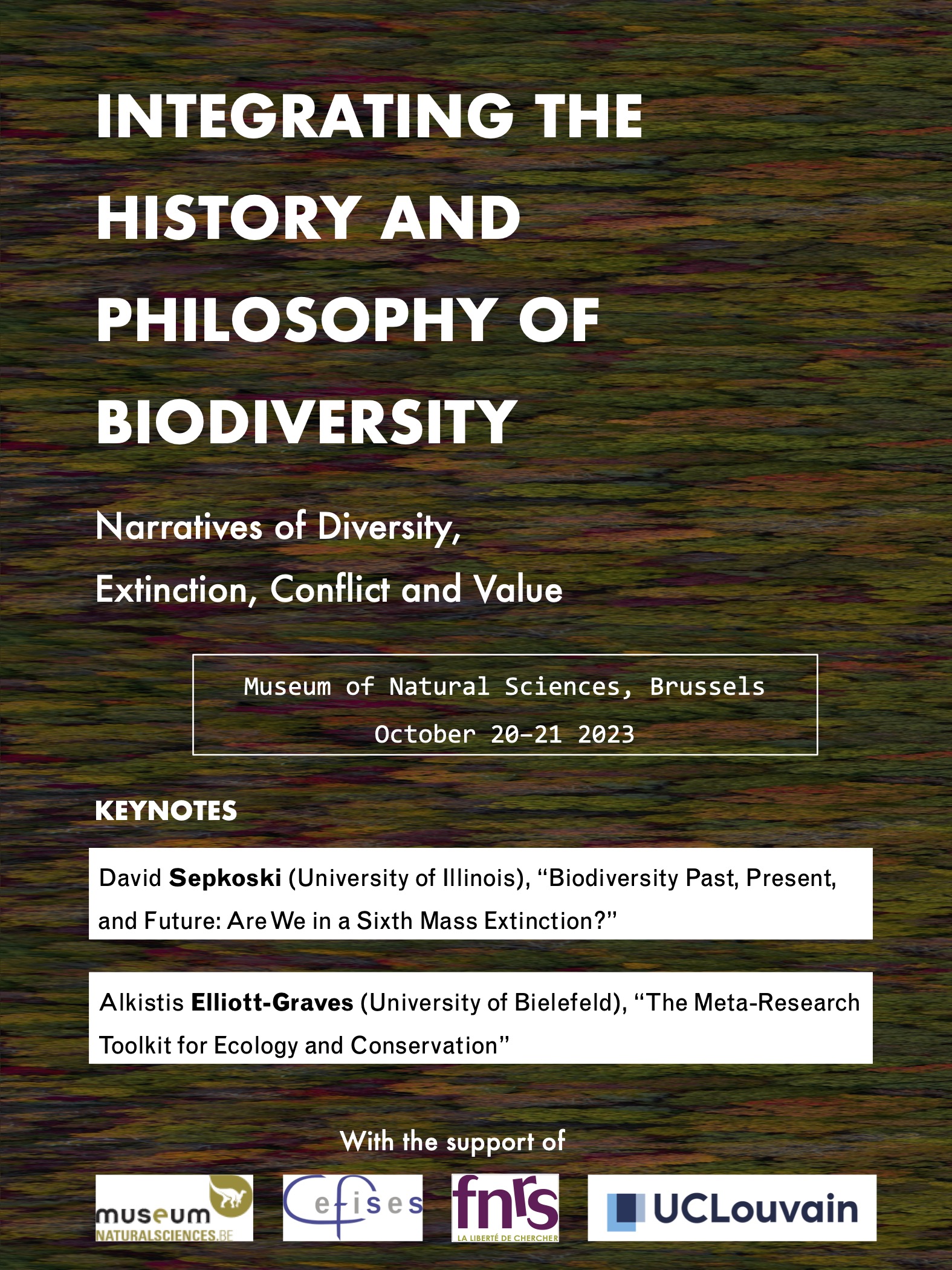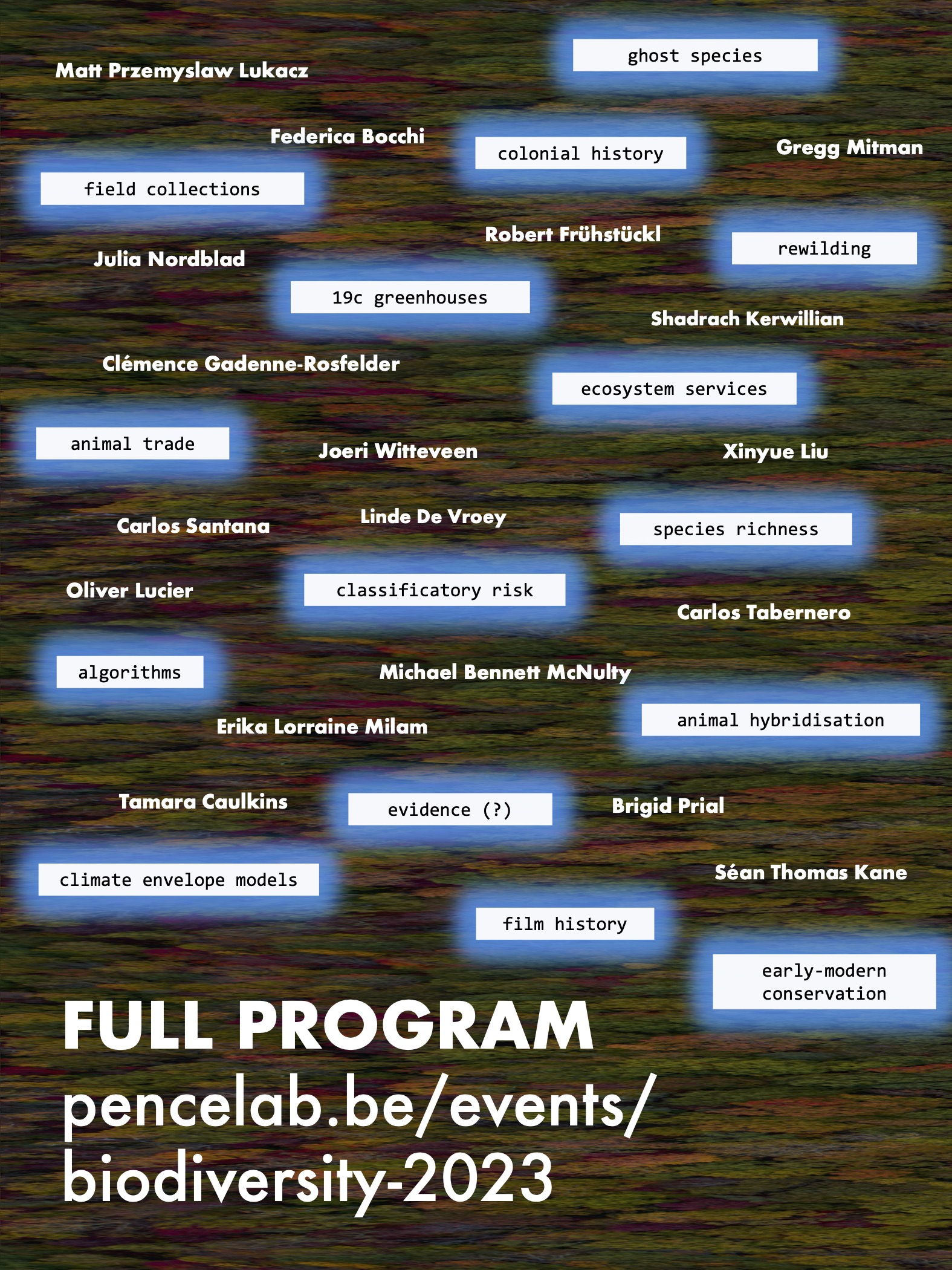

Events are the lifeblood of academia, the place and moment we make our communities. That is why I am always very keen in organising workshops, PhD conferences, seminars, reading groups… Here is a list of some of those events I (co-)organised these past years.
Together with my cohort colleagues Marieke Gelderblom (Utrecht University) and Martijn van der Meer (Erasmus University Rotterdam) I am co-organising the biennial conference by and for PhD researchers from universities in Belgium and the Netherlands. CfP and more information: https://www.gewina.nl/cfp-beyond-switching-plastic-straws/.
We invite contributions from PhD researchers in Belgium and the Netherlands who work in the field of the history of science in the broadest sense: including histories of knowledge, technology, medicine, the natural sciences, the humanities, and the social sciences, spanning any time period and any geographical region. This conference is open to researchers in any stage of their PhDs, takes place every 2 years, and serves as one of the few platforms in our field dedicated exclusively to PhD students. It is an event meant for convivial and collegial interactions, for all of us to share progress, struggles, and to offer support among peers. We want to sustain and transform our discipline by maintaining a strong collective of early career researchers. To get an idea of what the conference is like, please read the report in Shells and Pebbles written by the organisers of the 2023 edition.
Organised together with fellow iHC doctoral students Carolina Granado and Hèctor Isern.
Environmental history and the history of science have established themselves as self-standing disciplines for several decades now. However, despite the amount of topics they cover in common, the relationships between these two disciplines have not always been simple or obvious.
This seminar aims to create a space for researchers to outline possible forms of EH-HS relationships. Questions such as temporality, geographical scale, themes and methodologies emerge as points of tension and dialogue between the two disciplines. The link between historiographical propositions and the political agency of society and nature is also a central component that seems to differentiate the two disciplines but may unite them in new scholarship. Furthermore, given the time of eco-social crisis in which we live, we believe that it would be futile to practice a history that was blind to current eco-social problems, just as it would be beneficial for activism to take into account the historical trajectory of environmental struggles, or to reflect on the different ways that science is presented in envisioning solutions. For this reason, we also want to give a space to reflect on the existing interactions between these two disciplines and activism and imagine possible new scenarios.


Together with Charles H. Pence, we hosted a conference in Brussels in October 2023 to bring together scholars from several traditions – at the very least, from philosophy of science, history of science, and environmental history – to propose different ways to think about ‘biodiversity’ and explore how they might interact. Keynotes: David Sepkoski and Alkistis Elliot-Graves. The CfP is closed, the programme is out: https://pencelab.be/events/biodiversity-2023/.
Having met at conferences and during our studies, a group of PhD students in several European countries working at the intersection of the history of science and environmental history, we started in late 2022 an informal reading group to discuss the historiographic points of tension and dialogues between these two approaches to history. What is the place of ‘science’ in environmental history? What is the place of the ‘environment’ in the history of science? We meet online, twice a month. If you are interested you can sign up to the mailing list: https://sympa-2.sipr.ucl.ac.be/sympa/info/envhistofscience.
Together with Charles H. Pence, we run a year-long seminar in 2022-23 at the Center for the Philosophy of Science and Society (CEFISES) at the Université catholique de Louvain. You can watch the recorded sessions at the CEFISES website: https://cefises.be/en/weekly-seminars/. A brief description of the seminar’s goals:
Biodiversity raises a host of philosophical questions, including metaphysical (what kind of property is biodiversity, and is it the same property across all populations?), epistemic (how do we measure biodiversity in different contexts?), normative (what’s the relationship between biodiversity and social values?), and social/political (how is biodiversity taken up by political actors and international organizations?). The concept also has an interesting history, and one which can be explored by talking directly to researchers who were there at its inception (as the notion was only coined in the late 1980s) and by exploring histories of science and of the environment, where scientific aims and methodologies are deeply entangled with colonial histories, economic interests, and deep-seated notions about nature and the place of humans in it. We’re hoping to invite speakers who can explore as wide a variety as possible of these dimensions.
In the context of the Journal of Trial and Error’s efforts to contribute to a cultural transformation of scientific communities, we organised a three-way debate together with the Open Science Community Tilburg and Utrecht, and the Centre for Science and Technology Studies (Leiden).
The debate was titled “Open Science rankings: yes, no, or not this way? A debate on developing and implementing transparency metrics” and you can watch it back: https://youtu.be/TMGaNvo-SgM.
Hosted at Utrecht University while student at the History and Philosophy of Science master’s programme.